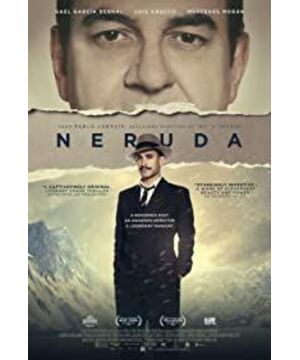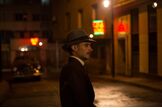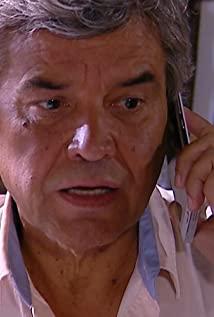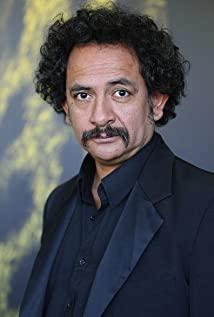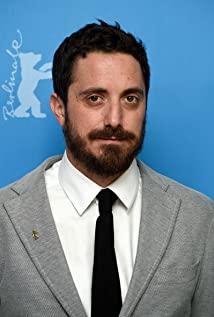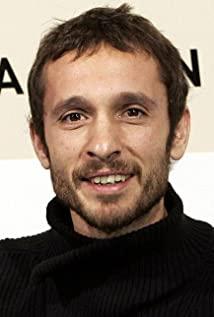The background of the story is Chile in 1948. The elected president, who was originally respected by the Communist Party, took refuge in the United States during the Cold War confrontation between the Soviet Union and the United States after World War II, and began to expel and persecute the Communist Party. The poet-politician Neruda, Chile's best-known Communist Party, also embarked on a world-renowned escape. The film uses bold imagination to poetically explore and reconstruct the chase between the poet and the police, allowing us to experience the fun of the interpenetration and combination of literature and film more intuitively.
It begins with a surreal scene of intense symbolism, with Chile's parliament meeting in a toilet, and leaders discussing politics as they relieve themselves, and the scene speaks for itself.
The film lets the cop, played by Gael Garcia, express his thoughts and observations of his pursuit, Neruda, through voiceover, as he imagines himself the son of a prostitute and a police chief, beginning with clear convictions and goals hunted down. He looked at the elites of the left with contempt, who were actually detached from the people. "Artists, intellectuals, lawyers, they've traveled the world and returned home full of rewards, indulging in pleasure and not feeling the sweat of the poor." "The Communist Party hates work, they'd rather burn churches, it makes them feel more alive."
The poet is on the run, but wants to feel up close to his pursuers, and doesn't want to hide where they can't find it. He leaves a detective novel at a time for his pursuers.
As the pursuit deepens, the persistent police follow the poet's footsteps, read his works, experience his thoughts, his identity begins to blur, and the person who fell in the snow believes that he is no longer the son of the police chief, but The son of Neruda, the son of the people.
This biopic does not attempt to record Neruda's life, but unfolds through the unique perspective of the policeman shaped by the writer. In the process of the policeman's pursuit of the poet to seek his own identity, he also leads the audience to explore the meaning of the poet's existence. In this pursuit, we also see the vain, selfish, and hedonistic side of the poet, who, in the words of one of his protectors: "You hope to use this persecution to make yourself a saint." There are also values for him. The poor female workers pointed to the elite leftists who had never experienced poverty and asked, "When communism is realized, will I be like them, or will they be like me."
And he himself is no longer the standard of film judgment, the meaning of his existence is his words. His words influenced his people, giving meaning to their nightmarish lives and flesh to his fictional characters. I think that's what this biopic shows us about Neruda, the great poet.
View more about Neruda reviews


